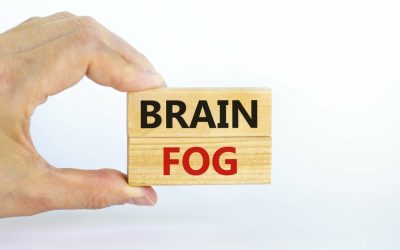An allergist specialist can offer this type of help after performing appropriate tests and determining exactly what the allergy is. To combat the effects of alcohol on your nose and sinuses, you can try OTC nasal sprays such as fluticasone or azelastine. Facial flushing is not always caused by alcohol and can be caused by other things like low blood sugar, menopause, skin conditions or taking certain medicines. The alcohol that we consume is broken down and converted to a chemical called acetaldehyde. Acetaldehyde is then transformed by the body to acetic acid (vinegar). Problems occur if alcohol cannot be broken down properly as acetaldehyde can build up and cause adverse effects.
Other studies have found that egg whites and gelatin are often used in the filtration processing of wine. Sneezing caused by infection or cold is treated with generally available medical products. It is worth reaching for preparations to remove accumulated nasal discharge. Sneezing of allergic origin should be carefully diagnosed and treated with methods for this type of condition. If sneezing becomes bothersome or worries you for another reason, it is always worth seeking advice from your family doctor, who will refer you to the appropriate specialist if necessary. Sneezing in response to the sun, also known as ACHOO syndrome (autosomal dominant compelling helio-ophthalmic outburst), is a common but not extensively researched reflex.
Can avoiding certain foods or drinks alongside alcohol help prevent nasal congestion?
Combining alcohol with certain medications also can cause reactions. In the United States, “moderate” typically refers to two drinks a day for adult men and one for women. Older adults metabolize alcohol faster, so if you’re in this age group, limit yourself to one alcoholic beverage per day. Ask your doctor if moderate alcohol consumption is suitable for you.
What are the symptoms of alcohol allergy?
Before addressing the question directly, it’s important to understand what nasal congestion is. Nasal congestion, commonly known as a stuffy or blocked nose, occurs when the tissues lining the nasal passage become swollen or inflamed. This can result in difficulty breathing through the nose and a feeling of stuffiness. If you experience a mild allergic reaction, over-the-counter oral antihistamines may be enough to treat it.
- It is important to consult with your doctor for an accurate diagnosis and appropriate treatment.
- As mentioned, a true allergy to alcohol is extremely rare, though cases of skin reactions have happened.
- If you think you might be allergic to wine, it is important that you seek medical attention right away.
- “If you are wanting to avoid alcohol, also be cautious of foods that may have alcohol added, for example in a marinade or sauce.”
- Often, what people consider to be an alcohol allergy is, in fact, alcohol intolerance.
What to know about alcohol allergies
Compounded medications have not been approved by the FDA and the FDA has not evaluated their safety or efficacy. One report, which the American Academy of Allergy Asthma & Immunology (AAAAI) cite, found a link between high levels of alcohol use and high IgE levels. When eating out, they should make a point of asking about ingredients to make sure they do not contain alcohol, because even a small amount can cause a reaction. There is no conclusive evidence to suggest that alcohol-induced sneezing is inherited.
Why do I sneeze after drinking beer?
- In most cases, alcohol-induced sneezing is harmless and merely an annoyance.
- Some signs of anaphylaxis include swelling, itching, tightening of the throat and mouth, a weak or rapid pulse, fainting, shock, and loss of consciousness.
- Never mix alcohol with medication without first consulting your physician.
- If you do choose to drink wine, white and rosé are your best options.
- While most people don’t have a problem with sulphites, those who are sensitive to them might experience allergy-like symptoms, including sneezing, after drinking wine with them.
- For people with pre-existing nasal sensitivity or who have conditions like rhinitis, this irritation can be especially pronounced.
Some individuals may have underlying sensitivities to ingredients in all alcoholic beverages or specific spirits, leading to reactions like sneezing. Keep a mental note of how each type of drink affects you, and don’t hesitate to consult with a healthcare professional if the sneezing becomes bothersome or excessively frequent. If you’re allergic to alcohol, you may experience hives, itching, swelling, difficulty breathing, and wheezing.
- “Alcohol may in some people aggregate skin conditions like urticaria (hives),” says Nurse Shaw.
- And make sure to use good quality gin, as the cheaper brands can sometimes be harsh on a sore throat.
- Now, let’s explore the ten most common symptoms of alcohol intolerance, which can affect various body systems but stem from the same trigger — the inability to process alcohol effectively.
- Thus it is important to know what you are drinking before you drink it.
- Shaw says symptoms may affect the skin, breathing and circulatory system.
Intolerance is different from an allergy and usually involves symptoms like flushing, nausea, or headache. “Alcohol may in some people aggregate skin conditions like urticaria (hives),” says Nurse Shaw. “Reactions to alcohol are unlikely to be caused by a ‘true’ allergy,” explains Holly Shaw, Nurse Advisor at Allergy UK. Alcoholic beverages like wine and beer can make allergies worse due to their high histamine content.

What causes the sneezing reflex after consuming alcohol?

If you find that certain foods make you sneeze, such as strawberries or shellfish, try avoiding them before you drink. This will help to reduce the https://ktanasushi.pe/2025/09/30/why-do-people-become-addicted-to-alcohol/ number of histamines in your system and make it less likely that they’ll trigger a sneeze. Mixed drinks containing any of the ingredients mentioned earlier are also likely to cause sneezing. Some people (most commonly people with an Asian background) develop severe facial flushing (redness in the face) if they consume small amounts of alcohol. If you’re a seasonal allergy sufferer, you know all about histamine, a chemical compound that can trigger inflammation and allergic reactions.
Alcohol also can cause a histamine reaction (allergic reaction) in the nose which can cause congestion or a runny nose. Some ethnicities, such as Asians, have inherited genetic traits that increase their risk for this reaction as well as other symptoms. Others believe it’s just a coincidental occurrence with no real significance. Whatever the source, sneezing after drinking beer is a phenomenon that many people have experienced.
Because the body can’t break down alcohol, it’s toxic byproducts flood the system and accumulate with each drink you have. If you suspect that you have an alcohol allergy or are experiencing unexplained allergic reactions, don’t wait to seek professional help. At HeyAllergy, we are committed to helping you lead a healthier, allergy-free life. Our team of experts is ready to assist you with accurate diagnosis, effective treatment, and ongoing drug addiction support. For a mild intolerance to alcohol, you don’t need to see a healthcare professional. Simply avoid alcohol, limit how much you drink, or avoid certain types of alcoholic beverages.
Another common symptom of alcohol intolerance is experiencing headaches or migraines (in more severe cases). alcohol and sneezing Like mentioned earlier, experiencing nasal congestion can make this symptom even more noticeable and painful. In some cases, symptoms may be the result of an underlying condition that can be managed with proper medical treatment. For example, a person with histamine intolerance can experience adverse reactions when drinking alcohol because their body is unable to process the histamine in certain types of drinks.
Some researchers speculate that the condition represents exaggerated sensitivity of the lining tissues of the nose and sinuses. Alcohol intolerance is typically diagnosed through a combination of self-observed symptom tracking, a detailed medical history and a physical exam. A healthcare provider will ask about your symptoms, their frequency and duration, and what types of alcohol seem to trigger them.